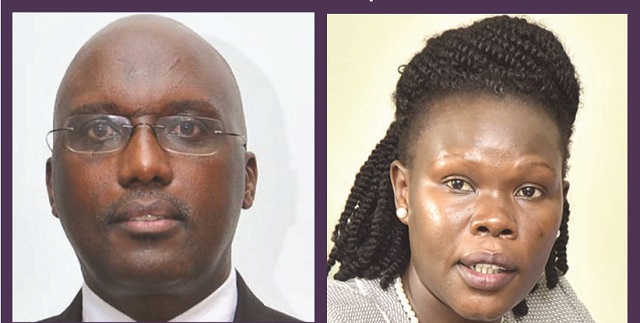
Karamagi told The Independent on Feb.05 that there is a reason to give the provisional administrator the benefit of the doubt given his knowledge of the company’s potential at the moment.
“There is still value in the company in terms of number of customers and assets; I am sure that if government had no interest in it,liquidation would have happened long time ago,” he said.
He supports government’s directive to all its agencies to subscribe to UTL services as a measure to keep the company afloat.
Karamagi, however, says the government could assess the possibility of raising money on its own and have a plan of offering some shares to Ugandans by listing it on the stock market.
The advantage with this option, Karamagi says is that the scenario of foreign investors repatriating profits made out of the business would be prevented.
In addition to supporting efforts geared towards stabilising the foreign exchange market, more jobs would be created to the local population, he added.
Progress registered so far
Data from the Uganda Registration Services Bureau (the official administrator) reveals that several achievements have been recorded since April 2017 when provisional administration started following the exit of Libyans.
These include; enhanced company value where creditors’ claims and the total liabilities have reduced from Shs709bn to Shs536bn.
Similarly, the company has recorded improved efficiency with network availability increasing from 75% in April 2017 to 97.5% at the moment and wage bill falling by 45 % to 1.02bn during the same period under review.
UTL has been able to influence a reduction in the cost of internet to ministries, departments and agencies (MDAs) from US$300 per Mbps in June 2017 to currently US$70 per Mbps, a step that triggered other telecom operators to lower their tariffs.
It also influenced the reduction of interconnection fees with MTN from Shs112 per minute to Shs25 per minute.
As a result, the cost of making a call from UTL to MTN has reduced from Shs300 per minute to Shs120 per minute.
“We hope to do the same with all other telecom operators to reduce the cost of communication in the country,” the bureau said in a notice shared with The Independent.
However, UTL executives remained cagey on the company’s customer base. But in 2017, the company had 700,000 customers, which represents only 3% market share of Uganda’s telecom industry, whose subscriber base stands at 23million for both fixed and mobile.
Genesis of UTL troubles
UTL’s troubles stretches as far as 2007, characterized by heavy indebtedness, decline in market share and losses as a result of inadequate investment, competitive pressure, dilapidated network and corporate governance challenges.
The situation worsened when UN imposed sanctions on the Libyan assets at the height of political turmoil in Libya in 2011 affecting capital inflow to the company.
As at 2017, the Libyan government through a private company called Ucom controlled management as the major shareholder with 69% shareholding.
Ucom was in turn owned by the Libyan Post, Telecommunication and Information Technology Holding Company (LPTIC) via its subsidiary LAP Green. The government of Uganda owned 31% shares.
Though Ucom resumed control of the company two years later following the lifting of international sanctions against Libya, LPTIC was not able to inject more capital into the company citing disagreement with the Ugandan government.
This triggered the Libyan authorities to bow out of the company and latter the latter was placed under provisional administration in April 2017.
Other companies that had interest in UTL takeover
Safaricom
Afrinet Communications Ltd
Baylis Consortium
Neubacher Montage LLP
****
 The Independent Uganda: You get the Truth we Pay the Price
The Independent Uganda: You get the Truth we Pay the Price



